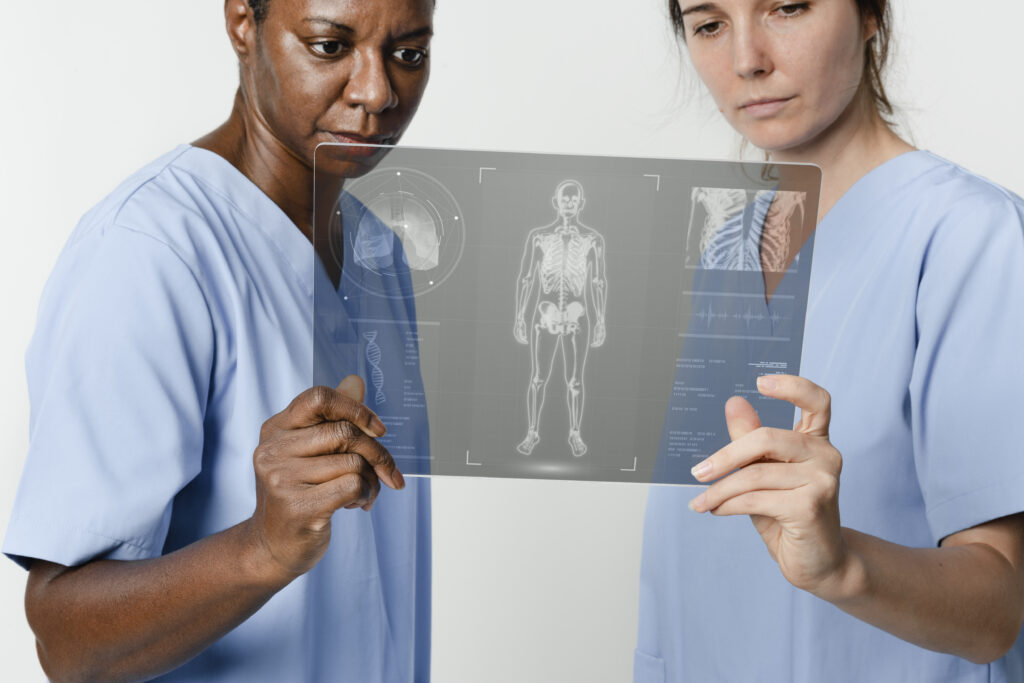Introduction: A New Dawn in Medicine
Imagine a world where your medical treatment is as unique as your fingerprint. This is no longer the future; it’s the present, thanks to Artificial Intelligence (AI). AI and personalized medicine are reshaping healthcare, introducing innovations that promise precise, efficient, and patient-centric care. From diagnostics to treatment plans, AI is driving a revolution that could redefine how we approach health.
The Power of AI in Diagnostics
Diagnostics is a cornerstone of effective healthcare. Yet, traditional methods are often time-consuming and prone to human error. Enter AI, a game changer that analyzes vast amounts of medical data at lightning speed. Machine learning models sift through patterns in medical images, lab results, and patient histories to detect diseases earlier and with greater accuracy.
For instance:
- Radiology: AI tools like Google’s DeepMind analyze medical images, identifying anomalies in X-rays or MRIs with incredible precision. Early detection of conditions like cancer saves lives and reduces healthcare costs.
- Pathology: AI algorithms assist pathologists in identifying rare genetic conditions, improving diagnostic speed for complex cases.
AI doesn’t replace doctors; it enhances their capabilities, allowing them to focus on delivering personalized care.
Personalized Medicine: Tailoring Care to the Individual
Personalized medicine marks a shift from reactive to proactive healthcare. With AI, treatments can be tailored based on genetic makeup, lifestyle, and even environment, ensuring better outcomes for patients.
How It Works:
- Genomic Data Integration: AI uses genomic sequencing data to predict how a patient might respond to specific medications. This approach is particularly beneficial in fields like oncology, where targeted therapies are crucial.
- Patient Monitoring: Wearable devices collect real-time health data, such as heart rate or glucose levels, and AI analyzes this data to provide insights. These insights guide doctors in adjusting treatment plans dynamically.
Case Study:
In cancer treatment, AI-driven models analyze a patient’s genetic profile to recommend the best drug combinations. This not only improves survival rates but also reduces the risk of adverse reactions.
AI’s Role in Drug Development
Developing new drugs is notoriously slow and expensive, but AI is accelerating the process. By simulating chemical interactions and predicting outcomes, AI helps researchers identify promising drug candidates in record time.
AI’s Impact on Research:
- Reducing the average 10-year drug development timeline.
- Cutting costs by predicting failures before clinical trials.
- Identifying repurposed drugs for emerging diseases, like during the COVID-19 pandemic.
Pharmaceutical companies are increasingly relying on AI to meet global health challenges, ensuring faster availability of life-saving treatments.
Future Horizons: AI in Preventive Care
AI’s capabilities extend beyond diagnosis and treatment. It empowers preventive care through predictive analytics. By analyzing patterns in patient data, AI identifies health risks early, enabling proactive interventions.
Examples of Predictive Analytics in Action:
- Chronic Disease Management: AI predicts worsening conditions in diabetes or hypertension patients, prompting timely interventions.
- Hospital Operations: AI models optimize workflows, reducing wait times and enhancing patient experiences.
The future of AI in healthcare is not only efficient but also deeply empathetic, focusing on prevention as much as cure.
Conclusion: AI’s Lasting Impact on Healthcare
The integration of AI in personalized medicine is more than a technological advancement; it’s a paradigm shift. By harnessing data, algorithms, and human expertise, AI is making healthcare smarter, faster, and more personal than ever before.
This revolution isn’t just about innovation; it’s about improving lives, one patient at a time.
